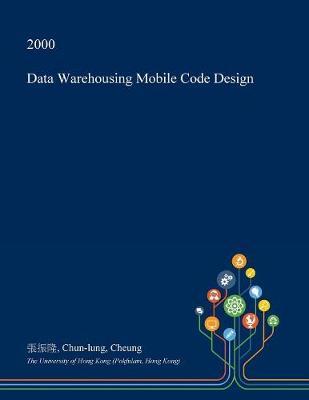Overview
This dissertation, Data Warehousing Mobile Code Design by 張振隆, Chun-lung, Cheung, was obtained from The University of Hong Kong (Pokfulam, Hong Kong) and is being sold pursuant to Creative Commons: Attribution 3.0 Hong Kong License. The content of this dissertation has not been altered in any way. We have altered the formatting in order to facilitate the ease of printing and reading of the dissertation. All rights not granted by the above license are retained by the author. Abstract: Abstract of thesis entitled Data Warehousing Mobile Code Design submitted by Cheung Chun Lung for the degree of Master of Philosophy at the University of Hong Kong in June 2001 Data warehousing is the process of extracting, integrating, transforming and loading data from source systems into a database called data warehouse. The data warehouse is then used by analytical systems. The advantages of data warehousing are 1) simplification of data collection and preparation, 2) more optimized database design, and 3) avoidance of resource contention. The architectural components of data warehousing are 1) source systems, 2) data warehouse, and 3) analytical systems. The interfacing subsystems are the data integration and query interfaces. The first interface provides means to transform and integrate data from different source systems into the data warehouse. The second interface provides access to warehouse data from analytical applications, and typically provides summarization of data. A new architectural framework, the Java Extensible Warehousing Interface (JEWI), is proposed in this thesis. This framework is based on the Extensible Warehousing Interface approach, which integrates the mobile code paradigm into the data warehousing environment, giving extra features to enhance the existing data warehousing architecture. This approach provides a clean and extensible interface for new features to be plugged into the system. This framework plays a role in simplifying the extension of data warehousing functions at runtime. This in turn simplifies the development and maintenance of transformation and summarization algorithms in the data warehousing architecture. Moreover, the JEWI framework was implemented as a set of Java libraries. The libraries were used to build a prototype system to demonstrate our ideas and to evaluate the framework. DOI: 10.5353/th_b2987299 Subjects: Data warehousing
Full Product Details
Author: 張振隆 ,
Chun-Lung Cheung
Publisher: Open Dissertation Press
Imprint: Open Dissertation Press
Dimensions:
Width: 21.60cm
, Height: 0.40cm
, Length: 27.90cm
Weight: 0.181kg
ISBN: 9781374728271
ISBN 10: 1374728276
Publication Date: 27 January 2017
Audience:
General/trade
,
General
Format: Paperback
Publisher's Status: Active
Availability: Available To Order

We have confirmation that this item is in stock with the supplier. It will be ordered in for you and dispatched immediately.



